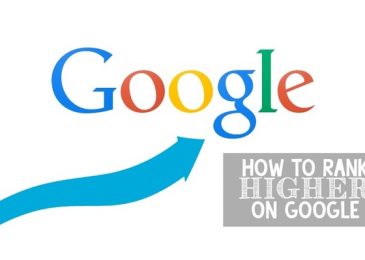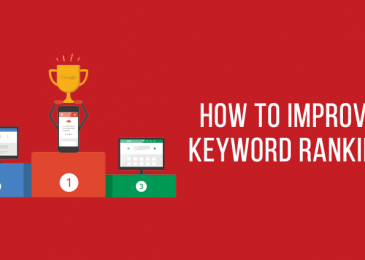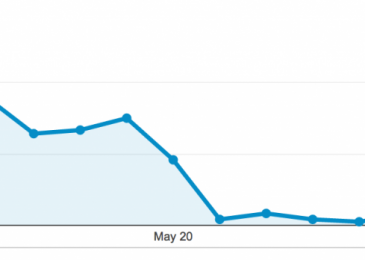We understand, there is nothing more demoralising than being penalised or losing valuable organic traffic.
We have worked with many clients to recover from the Panda penalty and have formed time-test strategies on how to do it effectively.
The fact is that recovering from a Panda penalty is difficult. If you haven’t properly done your due diligence then you may be wasting time trying to resolve issues that your website hasn’t even been affected by. It takes careful planning and expertise to recover from a penalty.
Here are just some of the avenues we recommend you look at to successfully recover if your website has been affected by Google Panda:
- Revamp low-quality content pages – I know this has been said and repeated a thousand times. However, the reality is that Google’s ability to detect poor content is getting smarter. Scan through all your existing pages and ensure that each page covers the topic title in a detailed manner that provides genuine informational value for your users. Remove any articles that don’t follow this best practice.
- Remove any duplicate content – Just like cutting through the bush with a machete, start slashing away and completely removing any content pages that are duplicated. If the existing URLs have backlinks pointing to them, make sure to implement 301 redirects accordingly.
- Rethink ads and affiliated content – If you have affiliate links on your website, it’s time to reduce them and only promote content that will genuinely provide value to your users.
- Ensure accuracy with page topics – Scan through your pages and make sure each page’s content closely addresses the main topic title. Keep information as targeted as possible. Use subheadings to break similar content into sub-topics. If you find that some subheadings don’t warrant its own section, consider sorting them into accordions. Clean up all pages that you think don’t meet a strict content quality criteria.
- Avoid auto-generated content – If your website previously accepted guest posts or sponsored posts, it’s time to enforce quality control. Remove any content pieces that doesn’t provide any sort of your genuine to your users. Moving forward, ensure you have strict publication guidelines in place. By personally reviewing each copy or having an experienced editor in charge of your website, this should generally stomp out low quality quality.
- Avoid over-optimisation – Keyword stuffing is a big no-no. Use natural language in your headings and content that capture the idea of your page topic well. Don’t stuff keywords, think about what your users are looking to find and craft your content around key terms that will directly address what they’re hoping to find.
- Enhance user experience – The goal here is to improve your website’s existing bounce rate. Using best on-page and UX practices, comb through your web pages and ensure things are structured in a way that is both easy to skim and absorb for your users. Without a doubt, the above the fold section should be a core focus as this is the section users see first before all else.
Steps to recover from Google Panda updates:
Write quality content:
I’m sure you’re tired of being told: “Write quality content and traffic will follow you.” When I say write quality content, it means to write a post that covers every aspect around the topic.
Your post should also be optimized for certain keywords and should not be just a random post. A quality post written without any targeted keywords is a useless post. You might get praise and lots of appreciation, but people won’t be able to find it in the search engine after some time.
Google takes quality and length very seriously, and there are certain things which you should keep in mind including the word count of your blog post. For example, a post like “How to recover from Google Panda” can be written in 5 simple steps or could be written in a detailed how-to guide like this.
Now, we know which one a reader would prefer, but what about a search engine?
When you write a detailed article, you cover more keywords, and especially you add more information into your post. According to an SEO debunked study, articles with longer length ranks reasonably well. I have even tested and verified this after I optimized many old blog posts.
Remove Low-quality content:
Now in the past, you might have written posts which are not well written, very short or may be not targeted. Google is taking low quality content very seriously and therefore you should start working on your old low quality posts and convert them into high quality article.
At least work on SEO details and length of the article. This will also help you in the internal linking of your old posts with the new one. Personally every day, I spend 1-2 hour to work on old posts and make them better. Even if you are not hit by Panda effect, you should do it to make your blog look better and give more quality to your readers.
Now the most common question would be what is low quality content. There is no 100% guide for low quality content, but here are some guidelines for the same:
- Is it useful for readers?
- Is it well researched?
- Is content comes from a trustable source?
- How likely customer is willing to give credit card details?
And many more other factors. But for now, here are my brief guide to find low quality content on your site:
- In Google analytic, find all posts which got <10 visits in 2 months time. Now analyze content of the post and see if it’s useful and relevant. Depending upon the post, you can update or delete or noindex it.
- Find all articles with no Google traffic & optimize it.
- Find all posts that are giving bounce rate higher than 85%. Work on them to lower down bounce rate. You can use these techniques to improve the bounce rate.
- Install Admin word count WordPress plugin and analyze traffic of posts with word count <250. Take appropriate action depending upon the post.
Remove unnecessary pages/posts from Google search:
The next step is to see what all pages or posts are part of Google, search from your domain. In the past, it was good to have more indexed pages, but now it’s essential to have only important pages and posts. Useless posts or pages just become a part of the search engine and doesn’t add values.
Especially if you have your tags indexed in Google, you might like to no index it, as Tags and categories don’t help search engine much. Imagine you used six tags within a post and have written 100 posts.
100*6 =600 tags (Assumption)
And now your tags are indexed in Google, imagine 600 low-quality pages being a part of search engine.
Duplicate content:
Google takes duplicate content seriously even if it’s on your domain or cross posted on other site. Too many duplicate content will affect your search engine presence for sure. Work on each and every detail of your site structure and SEO and make sure you are not serving any duplicate content. As I mentioned above, Google takes plagiarism seriously but the algo is not mature to really figure out difference between original and copied content, you need to work manually to fight against plagiarism. Also make sure you are using URL canonicalization.
Though Google claims that their new Content farm algorithm is perfect to fight against Auto RSS content generation blog but to be honest I really doubt it. Especially for CallingAllgeeks, I have seen many auto blogs are copying content but they are ranking better than original article itself. More over because of this, many posts are getting deindexed from web search. The only solution to this is a fight against plagiarism.
You should taking plagiarism seriously and as soon as you see any website copying your content, you can report it to Google team. Initially I used to ignore such blogs which used to copy content, but these days I actively report them to Google and so far in last 15 days, I have put request to remove 50+ such pages from Google index and from BlogSpot. So far 75% of my request has been successfully reviewed and copied URL’s are removed from Google. You should straight away file a DMCA notice or ask the webmaster to remove the content instantly. Missing this point will create post duplication issue, and more over you might see other site is stealing your hard work and traffic.
Read more The relationship between Google Panda Algorithm and content
_______________________________________________________________________________
For more details about our seo service packages, pls contact us
BIGBIGSEO Team
Email: bigbigseo@gmail.com
Skype: bigbigseo
https://www.facebook.com/bigbigseo
Thank you!





